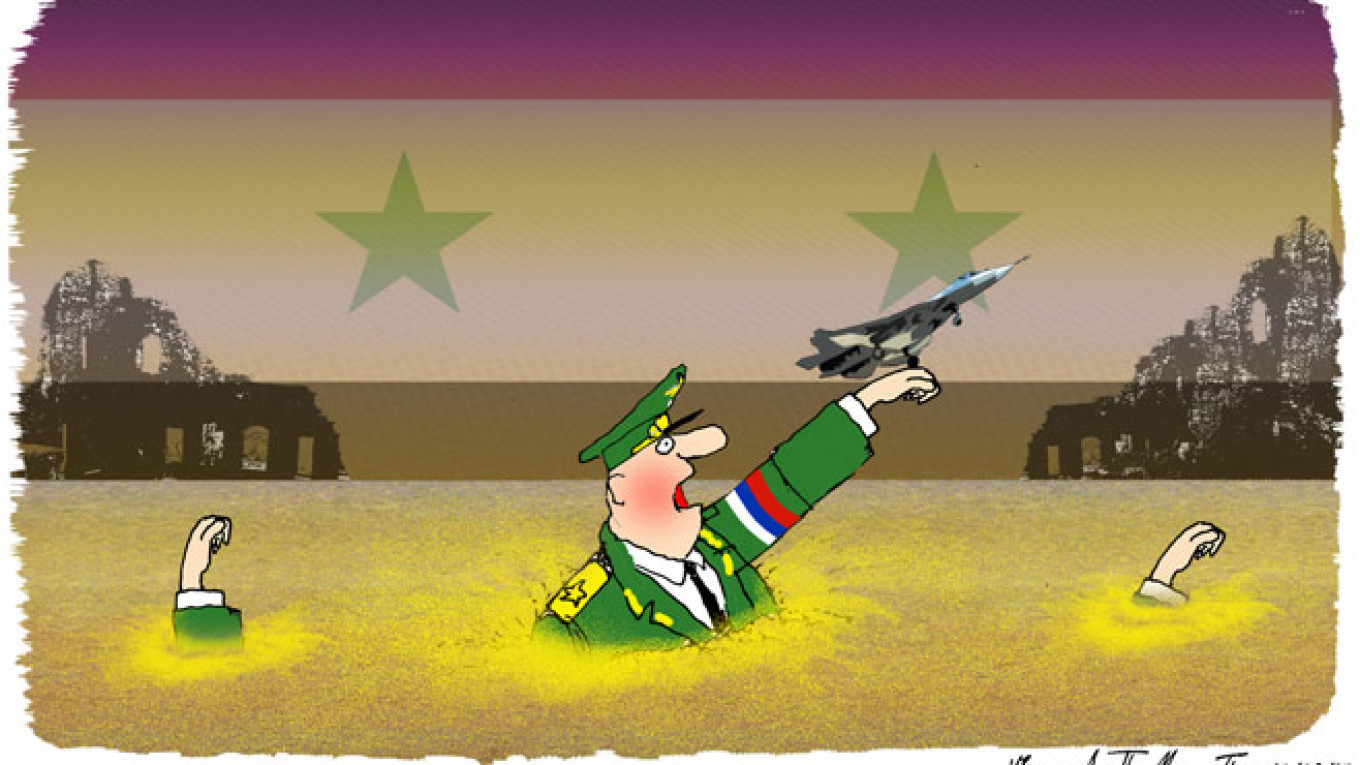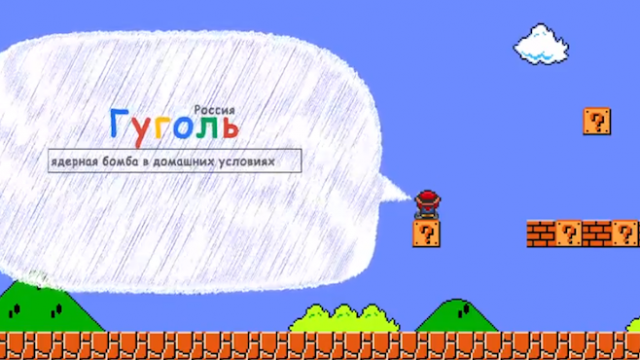It seems that President Vladimir Putin's recent meeting with U.S. President Barack Obama will be his last. Washington received convincing proof that any attempt to reach an agreement with the Kremlin is pointless. Russia hastily built up its base near Latakia and deployed its combat aircraft there with the sole aim of forcing Obama to meet with Putin during his recent visit to New York.
And immediately after the U.S. head of state reluctantly shook hands with and spoke to Putin, Moscow launched a bombing campaign in Syria. The Federation Council quickly authorized the president to start the new war. I suspect that the elected officials had to act quickly because Putin had probably already ordered the bombing of Syrian territory.
And while the Kremlin at least made a pretense of requesting authorization from the Federation Council, it flagrantly disregarded its obligations to the United States. Russia began its air strikes without any consultation between the U.S. and Russian militaries — a step that the defense ministers and presidents of both countries had only just agreed to observe.
Notification of the impending air strikes reached the U.S. Embassy in Baghdad only one hour before the Russian aircraft took to the skies. The Pentagon chief reacted immediately, declaring that he was disappointed by the Russian military's lack of professionalism for launching its attack without first reaching an agreement with the U.S. on measures to prevent unwanted incidents in Syrian airspace.
The military and diplomatic results of the air strikes were also highly questionable. Russian aircraft attacked areas where Islamic State terrorists are not located. What's more, representatives of Syria's so-called "moderate opposition" reported having come under attack and that the strikes had caused civilian deaths.
And finally, contrary to Putin's claim that he had held talks with all concerned parties, Saudi Arabia and Turkey — states that Moscow had only days earlier described as possible participants in a "broad anti-terrorist coalition" — protested loudly and demanded a stop to the bombing.
Of course, all of this was to be expected. In trying to coerce the West into a dialogue by deploying its military forces in Syria, Moscow pushed its way into a very complicated and problematic conflict. It was clear from the outset that providing even symbolic support for the forces of Syrian President Bashar Assad would inevitably elicit a very negative reaction from the other participants in that civil war.
It is worth asking whether Russia achieved the strategic goals that the Russian president announced at the UN. That is: Did Moscow's unannounced and uncooperative air strikes in any way help lay the foundation for the broadest possible anti-terrorism coalition? Judging by the reaction of the U.S. and Saudi Arabia, the answer is "no."
What's more, it did nothing to end Russia's international isolation. At least, U.S. Secretary of Defense Ashton Carter summed it up very bluntly. "While we insist on holding talks with the Russian military on Syria, I want to indicate quite clearly that these negotiations in no way cancel our strong condemnation of Russian aggression in Ukraine and our sanctions."
As for the military question, deploying a single air squadron to Latakia will hardly turn the tables in the hostilities. Those three dozen aircraft can make only 20-40 sorties per day. By comparison, the 7,200 sorties that the Washington-led coalition has carried out since it began operations have not stopped the Islamic State militants.
Under such circumstances, it is unlikely that the Russian aircraft enjoy some advantage that would give them victory on the battlefield. (Of course, Moscow leaders do enjoy one advantage: They can use state-controlled television to boast to the Russian people about the number of "terrorists" killed each day in Syria.)
In fact, Western forces probably have the advantage with their use of space-based reconnaissance, the fact that their airplanes take off from airfields in friendly states or from aircraft carriers and because they have no shortage of ammunition.
By contrast, the Russian military faces an uphill battle in Syria. I doubt they have effective intelligence in that region and must probably rely on information provided by Assad's generals, who might have their own interests. In particular, they might try to use Russian air support to attack not the Islamic State, but the so-called "moderate opposition."
Media reports have already appeared stating that Assad's troops will team up with the Iranian army and Hezbollah forces to launch a broad offensive, with Russian fighter jets providing air support. Such a campaign would obviously cause a considerable number of casualties, including civilians, and there is no doubt that Russia will be blamed for the slaughter.
When that happens, instead of restoring Russia's place among the group of civilized nations, Moscow leaders will have only succeeded in drawing down additional sanctions against this country.
If Russia plans to intensify its air strikes, the military will have to deliver many tons of ammunition to Latakia. And this can only be done by sea. The three or four aging landing ships that delivered the equipment for setting up the base are clearly inadequate to the task. That means Moscow would have to rely on civilian ships that could become the targets of terrorist attacks.
Worse, the base is located several dozen kilometers from the combat zone and it is entirely possible that the anti-Assad forces will stage an offensive to capture the base and destroy the aircraft.
There is no guarantee that the single Russian battalion deployed to protect the base could repel such an attack. If not, Moscow would have to either quickly evacuate those troops or send in reinforcements. Sending in more is fraught with the risk of getting tied down in ground operations and, ultimately, suffering numerous casualties. And finally, what is to stop the Islamic State from dispatching terrorist groups and taking the war to Russian territory right now?
It is already clear that Russia has become drawn into a useless war, one with no definite military objectives and which is impossible to win. The forces that Moscow has deployed are obviously insufficient to achieve even the tactical objectives in this struggle. In fact, it has every indication of becoming a long and pointless war.
Alexander Golts is deputy editor of the online newspaper Yezhednevny Zhurnal.
A Message from The Moscow Times:
Dear readers,
We are facing unprecedented challenges. Russia's Prosecutor General's Office has designated The Moscow Times as an "undesirable" organization, criminalizing our work and putting our staff at risk of prosecution. This follows our earlier unjust labeling as a "foreign agent."
These actions are direct attempts to silence independent journalism in Russia. The authorities claim our work "discredits the decisions of the Russian leadership." We see things differently: we strive to provide accurate, unbiased reporting on Russia.
We, the journalists of The Moscow Times, refuse to be silenced. But to continue our work, we need your help.
Your support, no matter how small, makes a world of difference. If you can, please support us monthly starting from just $2. It's quick to set up, and every contribution makes a significant impact.
By supporting The Moscow Times, you're defending open, independent journalism in the face of repression. Thank you for standing with us.
Remind me later.







